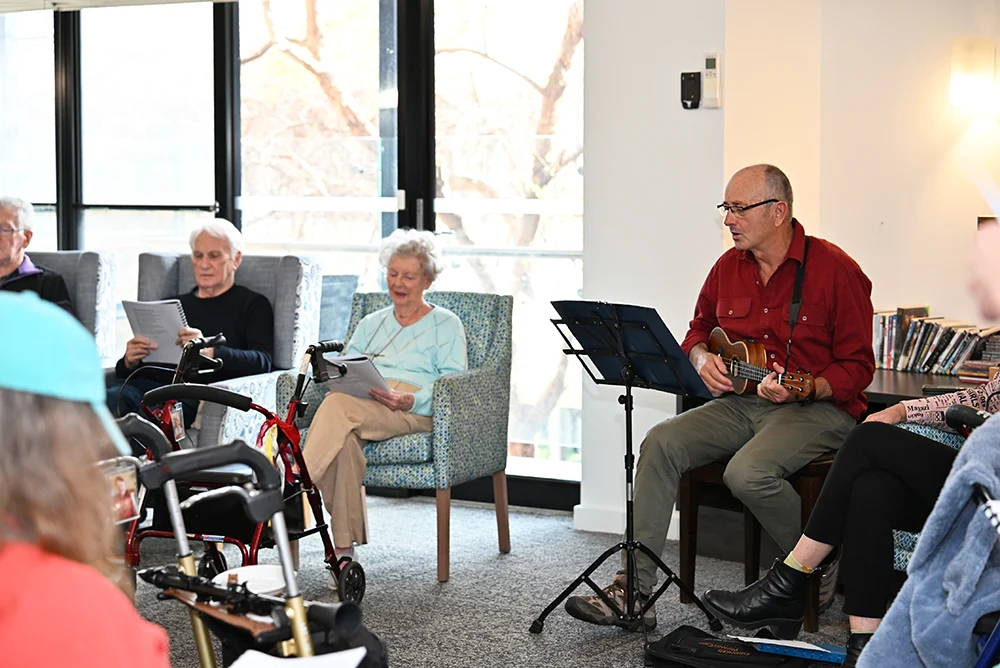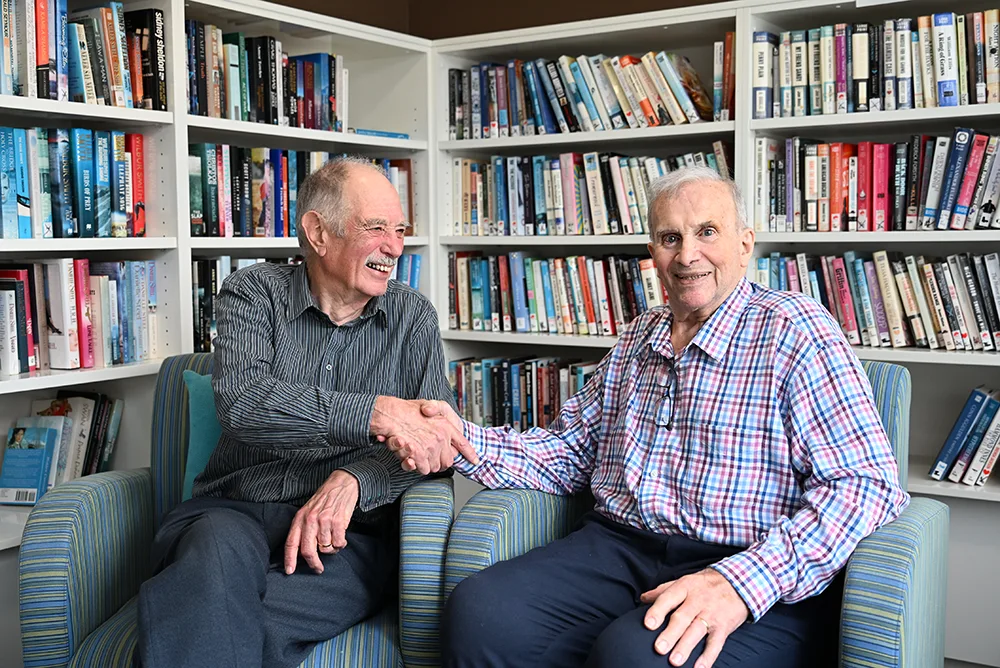Dementia, Not a Normal Part of Ageing.

It’s Brain Awareness Week – a global campaign to increase public awareness around the benefits of maintaining a healthy brain, and potentially reducing the risk of developing conditions such as dementia.

As we get older, one of the most common changes that we notice is a decline in our memory function, but that doesn’t mean we have dementia. Memory change with healthy ageing doesn't interfere with everyday life, the way memory changes seen in people who live with dementia does.
Forgetting where the keys are, losing your sunglasses and finding them on your head, walking in to the kitchen and forgetting why, are all normal moments of forgetfulness, and can happen to anyone at any age. The key difference is that a person living with dementia may forget where the keys are and what they are used for to begin with.
The impact of ageing on memory is different for each person. According to Dementia Australia, as you get older, you may experience a range of normal changes such as: a reduced ability to pay attention, the ability to memorise details, the time it takes to recall memories, and those bothersome “on the tip of the tongue” moments - where you just can’t remember a person’s name or the right word for something.
Non-modifiable risk factors
Dementia is referred to as an umbrella term for around 150+ conditions affecting the brain, body, memory and the ability to perform everyday tasks in different ways. Brain function is affected in such a way that it begins to interfere with the person’s social and working life and abilities.
Non-modifiable risk factors for dementia include:
- Your age – as you age, your risk of developing dementia increases.
- Your genetics – there are a few very rare forms of dementia associated with specific genes
- Your family history – a family history of dementia increases your risk of developing dementia but at this stage it is not clear why.
How to reduce your risk
Did you know what is good for your heart is also good for your brain? Dementia Australia recommends five steps to maximise your brain health:
Step 1: Look after your heart. What’s good for your heart is good for your brain. The risk of developing dementia appears to increase as a result of conditions that affect the heart.
Step 2: Do some kind of physical activity. Physical activity increases blood flow to the brain, stimulates the growth of brain cells and the connection between them.
Step 3: Mentally challenge your brain. Mental exercise may also protect against accumulation of damaging proteins found in the brain of a person living with Alzheimer’s.
Step 4: Follow a healthy diet. Your brain needs the right nutrients to function properly.
Step 5: Enjoy social activity. Social interaction with people whose company you enjoy can help to look after the health of your brain.
Dementia Australia also provides handy tips to help you keep your memories and mind sharp. These include:
- Avoid harmful substances. Excessive drinking and substance abuse damage our brain cells.
- Trust yourself more. If you feel you have control over your life, your brain chemistry and memory can improve.
- Relax and take your time. Tension may prolong a memory loss.
- Make sure you get regular and adequate sleep.
- Use a notepad and carry a diary. This may not keep your memory sharp, but does help compensate for any memory lapses, and can provided some reassurance when you are not sure if you have forgotten something.
- Organise your belongings. Use a special place for everyday items such as your house keys and reading glasses.
- Repeat names of new acquaintances during conversation or assign something familiar to a new name. For example, you might meet someone named Caroline, and you could assign that name in your mind to the Neil Diamonds song “Sweet Caroline”.
Take the “Your Brain Matters” challenge!
Your Brain Matters is a program that guides you on how to look after your brain health. It is based on scientific evidence that a number of health and lifestyle factors are associated with brain function and the risk of developing dementia.
Creating a challenge or setting goals is an excellent way to increase motivation and start some brain healthy habits. The 21 Day Challenge is asking you to pledge a commitment to your brain health and spend the next 21 days enjoying your new experience. All you need to do is start something new, like learn a new hobby or craft, study a new language or try a new musical instrument.
You can find out more about brain awareness week here https://brainfoundation.org.au/brain-awareness-week
For more information call the National Dementia Helpline on 1800 100 500 or visit the Dementia Australia website at dementia.org.au










